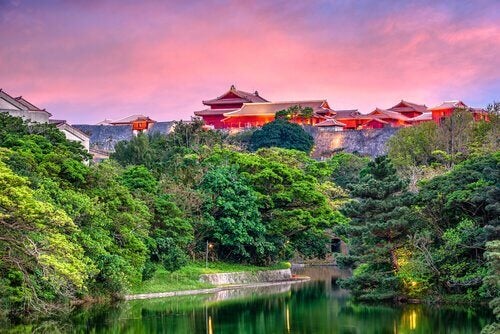In recent years, five places in the world have been identified where people live longer than average and, in addition, seem happier, these places are called blue zones.
The analysis of why longevity is greater in these places contains data that, in addition to being fascinating, give many tips to apply in daily life and thus achieve a better quality of life.
- There are certain habits and ways of life shared by the inhabitants of these places.
- Even though these areas are hundreds of kilometers away.
- It is a fact that makes us think that it is the way these people live and it is in the world that influences their happiness and health.
- Not their geographical location.
So, let’s see what factors these communities share
U. S. researcher and National Geographic member Dan Buettner conducted a comprehensive survey, based on a demographic study, which presented the Barbaglia region of Italian Sardinia as the place whose inhabitants have the longest lifespan.
He assembled a research team of doctors, nutritionists, epidemiologists, anthropologists and demographers; in their research, Buettner and his team discovered four other places with the same characteristics and, moreover, that not only matched statistical data, but were also part of lifestyles.
In this way, the map of the blue area is composed of
Although they belong to completely different geographies, climates and cultures, the inhabitants of the Blue Zones share a surprising demographic. This information excludes these matches from being caused by the climate or a specific type of crop.
The secrets found in these communities are believed to be based on at least five factors that seem to ensure the spectacular longevity and quality of life of their inhabitants; these factors are related to diet, exercise and the purpose of life. to do with resources to adapt to stress and social relationships.
The inhabitants of the blue areas consume many vegetable and fish products, rather than red meats, some of them also regularly consume olive oil and red wine, in addition, people are used to eating slowly and not completely filling their stomachs.
This, in Okinawa, is known as drunken hara hachi, the secret that prolongs life: eating less is living longer. Studies of this practice have shown that it reduces coronary heart disease and cancer diagnoses. Drunken hash is a practice derived from the thinker. Confucius, who recommended a self-imposed caloric diet: eat alone until 80% satisfied.
Another habit that people who live in blue areas have in common is that they are not sedentary, do not exercise in gyms or sports centers, but their routine includes long walks and bike rides, they also work in the countryside or in orchards, naturally introducing physical activities into their lives.
One of the fundamental factors these people seem to share is that they have a reason to get up every happy day because they have something to do.
In Kinawa, there is also a name for it: Ikigai, or having a purpose in life and not losing it to age, this concept is not related in any way to professional or economic purposes, but to the desire to do something that makes you really happy. .
Another aspect that seems to influence quality and life is feeling useful and developing social bonds that are not limited to family, these people take care of their friends and avoid harmful relationships, actively participate in social circles and work for the good of the community They definitely share quality time with others.
Research has been conducted on people living in blue areas and their resources to cope with stress. They’re practically stress-free. These communities pay special attention to aspects such as rest and the quality of their sleep hours, many of them practice meditation or very ancient relaxation techniques and have deep spiritual beliefs.

